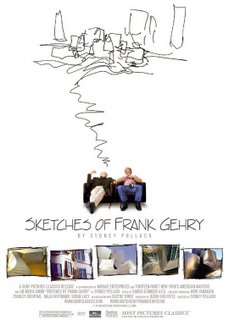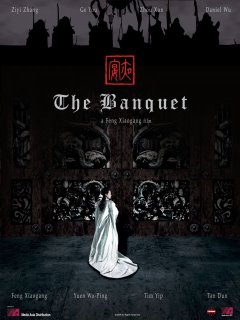 Over South of the Border is a 2006 release, about a North Korean man and his family fleeing to South Korea, the upheaval it causes in their lives, and their eventual integration to the new modern society. Kim Seon-ho (played by Cha Seung-won) was a horn player in the orchestra, and he was happily engaged to Young-hwa (Jo Yi-jin). But little did anyone know that his grandfather, a once honored hero, had fled to the south, and this threatened the remaining family, as this made them look like sympathisers in the eyes of the Communist party. Kim Seon-ho asks Young-hwa to come with him, but she has to stay behind, as she could not leave her ailing parents. So he promises to make arrangements for her and her parents when he establishes himself in Seoul. The trip across is long and dangerous, but they make it across. In Seoul they discover that life is very different; a city of lights and movement; of women dressed provocatively in ads, and televsion showing all different kinds of things. Seon-ho tries out many different jobs, all menial, scraping together enough money for his fiancee. He meets a man who promises to grease the right palms, but after giving him the money, he later finds out that he is a con man out to take advantage of people like him. Furious, he confronts him in a restaurant, and starts a fight. He is beaten soundly. He staggers back to a restaurant where he had been working, and the woman owner takes care of him, and a relationship between the two develops. They end up living together, and start up a new restaurant, which emphasizes a more North Korean cuisine. One day he is watching the tv and sees that a huge number of refugees have crossed into South Korea, and through a connection, finds out that one of them is his fiancee. He secretly goes to see her, and they are reunited, however, he fails to tell her of his new situation. They have a brief but blissful fling, but Young-hwa realizes that things have changed, and while claiming to go out to get groceries, leaves him for good. Seon-ho ends up back with the other woman, marries and has a child. At the end of the film while taking the family to a photo shoot, he discovers that Young-hwa has indeed moved on and started to build a new life for herself.
Over South of the Border is a 2006 release, about a North Korean man and his family fleeing to South Korea, the upheaval it causes in their lives, and their eventual integration to the new modern society. Kim Seon-ho (played by Cha Seung-won) was a horn player in the orchestra, and he was happily engaged to Young-hwa (Jo Yi-jin). But little did anyone know that his grandfather, a once honored hero, had fled to the south, and this threatened the remaining family, as this made them look like sympathisers in the eyes of the Communist party. Kim Seon-ho asks Young-hwa to come with him, but she has to stay behind, as she could not leave her ailing parents. So he promises to make arrangements for her and her parents when he establishes himself in Seoul. The trip across is long and dangerous, but they make it across. In Seoul they discover that life is very different; a city of lights and movement; of women dressed provocatively in ads, and televsion showing all different kinds of things. Seon-ho tries out many different jobs, all menial, scraping together enough money for his fiancee. He meets a man who promises to grease the right palms, but after giving him the money, he later finds out that he is a con man out to take advantage of people like him. Furious, he confronts him in a restaurant, and starts a fight. He is beaten soundly. He staggers back to a restaurant where he had been working, and the woman owner takes care of him, and a relationship between the two develops. They end up living together, and start up a new restaurant, which emphasizes a more North Korean cuisine. One day he is watching the tv and sees that a huge number of refugees have crossed into South Korea, and through a connection, finds out that one of them is his fiancee. He secretly goes to see her, and they are reunited, however, he fails to tell her of his new situation. They have a brief but blissful fling, but Young-hwa realizes that things have changed, and while claiming to go out to get groceries, leaves him for good. Seon-ho ends up back with the other woman, marries and has a child. At the end of the film while taking the family to a photo shoot, he discovers that Young-hwa has indeed moved on and started to build a new life for herself.What is interesting about this film is at times it feels like a documentary, that you are watching a unique ascpect of Korean culture -- that of the immigrants from the north. From the living quarters to the jobs, the film does a good job of capturing the hard life that they endure, but also the benefits of being in an affluent society. Cha Seung-won does a good job of portaying a man deeply in love and also feeling somewhat overwhelmed by his new environment. Jo Yi-jin provides a much needed visual and character relief; however, the soap opera aspect of the latter half of the film, where she joins him in South Korea, is trite and not very well resolved. A worthy rental, check it out!







